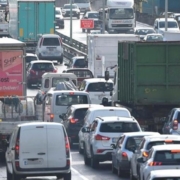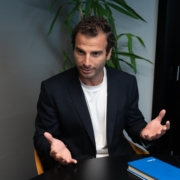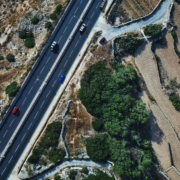Political consensus to fix our traffic problem
Government, opposition must work together to address the country’s traffic problem.
A new transport minister was sworn in on Monday. Tasked with tackling the nightmarish situation on Malta’s crowded and crumbling roads, Chris Bonett has been handed one of the most challenging portfolios in government.
The central issue? How do you reduce traffic congestion on an overcrowded island that’s obsessed with cars? This is not a new dilemma – far from it.
So, how can Bonett succeed where successive others (he is the fourth transport minister since 2013) have struggled?
First off, there’s no time to waste.
The new minister should resist the urge to play for time by sweeping the issue under the rug – commissioning new studies or long-drawn-out reports on the transport situation.
The traffic problem, as well as the best possible solutions, have already been thoughtfully laid out by the country’s leading experts – most recently in the National Transport Strategy for 2050 as well as the National Transport Plan 2025.
In essence, these documents say the situation is critical and call for a total shift in the way we travel across these islands. It is time, the strategy documents say, to embrace a car-light lifestyle and change the way we move from A to B.
This means investing in buses, bicycles, ride sharing and, yes, sure, even ferries and other innovative solutions. But it also means taking unpopular decisions. And this is where it gets tricky.
Malta’s two-party political system means that, all too often, governments are held hostage by the electorate over key policy issues. Ministers are unable to make bold decisions necessary for the good of the country for fear of reprisal from voters come the next general election.
What transport minister, for instance, would introduce measures that disincentive personal car use? None. What transport minister would free up urban space currently gobbled up by on-street parking? Or create entirely car-free zones to replace tarmac with new walkways, trees and community spaces?
What transport minister would go through the trouble of investing in the development of a national mass transit system that won’t even be finalised in their political lifetime?
Making decisions that will yield long-term benefits is difficult when the policymaker’s future depends on the five-year political cycle. The solution to this dilemma lies in political consensus.
If responsibility is shared across both the government and the opposition for this sort of unpopular, but sorely needed, policy decisions then the threat of voter retribution is significantly reduced.
If Bonett wants to make meaningful headway in addressing the traffic problem, then he must reach across the aisle and bring the opposition on board.
Reducing personal car use holds the potential to reduce the negative impacts of transport.
eCabs Malta CEO Andrew Bezzina
Shadow transport minister Adrian Delia must also rise to this challenge and show the sort of political maturity and long-term thinking that is so desperately needed if we are to truly tackle the traffic problem. This could be a watershed moment for Malta – a political coming-of-age where we finally begin addressing the traffic situation in a meaningful way.
Bonett’s first comments to the media shortly after being sworn into office are encouraging.
He was right when he told reporters that the solutions are long-term and require stakeholder input.
Make no mistake about it: the situation is critical.
According to the number-crunchers at the NSO, there are now more than 18,000 vehicles squeezed into every square kilometre of road in Malta – the smallest and most densely populated country in the EU.
As the CEO of the only locally based ride-hailing operation in Malta, I recognise that we too play a big role here.
The ride-hailing sector has added new vehicles to our roads and eCabs hopes to engage with Bonett to untangle this sector and introduce workable policies to improve the situation.
Solutions exist.
This is a goal eCabs shares with cities around the world and with good reason. Because reducing personal car use holds the potential to reduce the negative impacts of transport and unlock our urban spaces. From air pollution to traffic accidents and the vast amounts of space used for parking and new roads which, instead, could be given back to the people who actually live in our towns and villages.
But, to achieve this, we need political maturity and consensus.
Across the globe, countries and cities have gone on to reap the benefits of truly liveable urban spaces after making difficult policy decisions.
It can work here too.
This opinion piece by eCabs Malta CEO Dr Andrew Bezzina was published in The Times of Malta.










